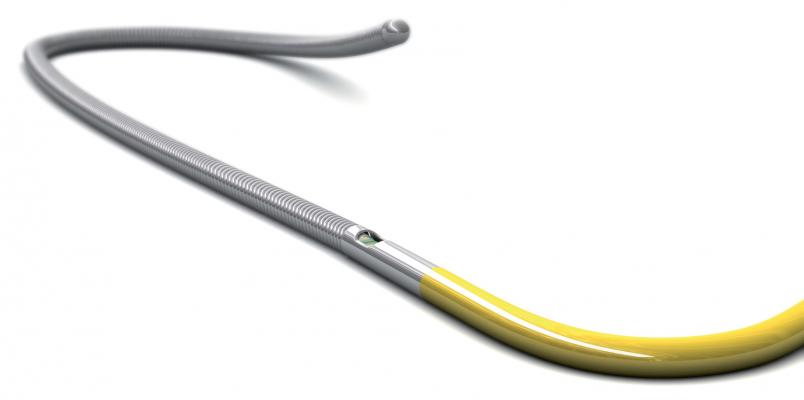
September 4, 2014 — St. Jude Medical announced a new multicenter clinical trial has found that using the company’s fractional flow reserve (FFR) technology changed the course of treatment for more than one-fifth of patients suffering non-ST segment elevation myocardial infarction (NSTEMI) heart attacks. The data also demonstrated that FFR-guided percutaneous coronary intervention (PCI) is safe and tended to reduce procedure-related myocardial infarctions in NSTEMI patients over angiography alone. NSTEMI is the most common form of acute coronary syndrome and a leading cause of premature morbidity and mortality worldwide.
The data were presented during a hot line late-breaking session at the European Society of Cardiology (ESC) Congress 2014 and appears in the online version of the European Heart Journal.
FFR technology allows physicians to more accurately assess the severity of blood flow blockages in the coronary arteries and determine which lesions require treatment. Previous clinical studies have demonstrated St. Jude Medical FFR technology can improve patient outcomes and reduce medical costs in patients with stable coronary artery disease (CAD).
Now, in a study of 350 patients suffering NSTEMI heart attacks, PressureWire FFR measurement technology is credited with altering the treatment strategy of approximately 22 percent of patients. The study also demonstrated a trend toward a reduction in procedure-related myocardial infarction among patients whose therapy was guided by FFR using PressureWire technology.
“In patients suffering NSTEMI, traditional diagnostic imaging tools have limited our ability to optimally assess which blockages require revascularization,” said Colin Berry, M.D., Ph.D., professor of cardiology and imaging at the University of Glasgow and principal investigator of the FAMOUS-NSTEMI clinical trial. “What we’ve now found is FFR technology has additive diagnostic and clinical benefits for NSTEMI patients. We need to continue to evaluate the technology’s potential in new segments of patients.”
The FAMOUS-NSTEMI trial is the first comprehensive clinical assessment of the ability of PressureWire FFR technology to guide treatment in patients suffering NSTEMI. Currently, physicians treating NSTEMI patients at a high risk for serious cardiac complications will often opt for a treatment strategy that relies on coronary angiography to assess blood flow within the arteries of the heart. FFR represents a new approach to managing NSTEMI patients because it relies less on subjective visual assessments of angiography and instead offers an objective physiological assessment of blood flow blockages.
“Using St. Jude Medical PressureWire, physicians can leverage FFR to better assess the need for interventional procedures and more accurately identify lesions that require stenting,” said Mark Carlson, M.D., chief medical officer at St. Jude Medical. “The clinicians leading the FAMOUS-NSTEMI study have now confirmed that a new group of patients can benefit from FFR.”
The FAMOUS-NSTEMI trial enrolled 350 patients in six U.K. hospitals between October 2011 and May 2013. Patients enrolled had at least one coronary stenosis at least 30 percent occluded at the time of admission for NSTEMI. In patients randomized to the FFR-guided group, an FFR of greater than 0.80 indicated revascularization by PCI or coronary bypass surgery.
For more information: www.sjm.com


 January 05, 2026
January 05, 2026 









